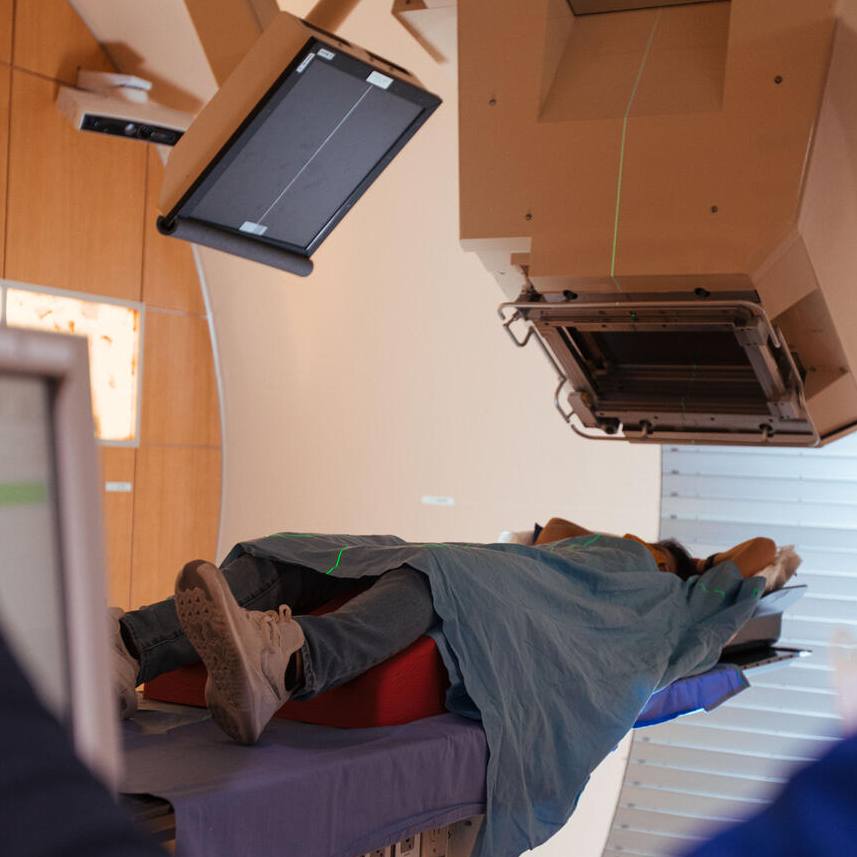Flying is as safe as ground travel after chest surgery, Mayo study finds
 Rochester, Minn. — Summer travel isn’t for vacation alone. For some people, it may include a trip to an out-of-town hospital for surgery. If you are traveling for chest surgery, you may wonder whether it is safer to return home by car or plane. A new Mayo Clinic study found that, contrary to conventional wisdom, air travel is just as safe as ground travel after chest surgery, and there is often no reason to wait for weeks after an operation to fly home. Lead study author Stephen Cassivi, M.D., a Mayo Clinic thoracic surgeon, offers these five tips for safer, more comfortable travel home after surgery:
Rochester, Minn. — Summer travel isn’t for vacation alone. For some people, it may include a trip to an out-of-town hospital for surgery. If you are traveling for chest surgery, you may wonder whether it is safer to return home by car or plane. A new Mayo Clinic study found that, contrary to conventional wisdom, air travel is just as safe as ground travel after chest surgery, and there is often no reason to wait for weeks after an operation to fly home. Lead study author Stephen Cassivi, M.D., a Mayo Clinic thoracic surgeon, offers these five tips for safer, more comfortable travel home after surgery:
Don’t travel alone. If you are traveling by car, you will need to have someone else to drive you in the early period after your operation; work with your physician to determine when it is safe for you to drive again. You will likely need to have someone else lift your luggage; if you are traveling by air, avail yourself of services that provide that, or send your luggage ahead.
Walk every hour during your trip. Be as mobile as possible. In the days after surgery, the body is in an inflammatory state that makes a person more predisposed to blood clots, particularly in the legs, and especially if the blood isn’t flowing as well, Dr. Cassivi says.
“If you’re in the car, stop every hour and get out and walk around the car once or twice, to keep the blood moving,” Dr. Cassivi says. “If you’re flying, there are exercises in the airline booklets or that your doctors and nurses can teach you to pump your calves if you’re stuck in a middle seat. Try to get an aisle seat so it’s easier to get up and walk.”
Just walking up and down the aisle once or twice during a long flight or once or twice every hour is useful; it helps avoid the immobility that can lead to a blood clot, Dr. Cassivi says.
Stay hydrated. Dehydration raises the risk of blood clots after surgery. Airline cabin air tends to be dry. It’s best to drink water.
“Some of the other drinks – alcoholic drinks or carbonated beverages – can be somewhat less hydrating and you don’t get the same benefit for the volume of fluid you’re taking down,” Dr. Cassivi says. “Staying hydrated, especially during airline flight, is very important.”
Wear loose-fitting clothing. Binding up is not necessarily the best situation after surgery, unless specifically recommended by your surgeon, Dr. Cassivi says. Compression stockings are an example of tight-fitting clothing a physician may order to avoid blood pooling in the leg veins.
Consider supplemental oxygen. If you’re having significant problems getting enough oxygen, it would be smart to look at using supplemental oxygen – such as a portable oxygen tank – during your trip home. Patients showing signs of oxygenation problems in the hospital are usually sent home with supplemental oxygen, whether they are traveling by ground or air, Dr. Cassivi says.
Overall, travel home by air is as safe as ground transportation after surgery, says Dr. Cassivi, who presented research on it at the American Association for Thoracic Surgery annual meeting in Toronto in April. The study found that chest surgery patients heading home by plane were, like ground travelers, at a similar low risk for complications such as pneumonia, deep vein thrombosis, pulmonary embolism, or lung problems such as pneumothorax, a collapsed lung.
“And that speaks to a very important question that’s often managed by dogma or urban myth, hospital myth. We found that although it’s not a zero risk, the risk is low, and the risk is the same between ground and air travel,” Dr. Cassivi says. “So the old rules of staying put after your surgery for two to four weeks before flying home may not apply. And I think it opens the door for patients and their surgeons to look seriously at their individual situations and govern travel decisions by how well they’re doing.”
Each year, more than a million people from all 50 states and nearly 150 countries travel to Mayo Clinic for care.
“In general, travel after surgery can be done if it’s well-organized and thought out ahead of time,” Dr. Cassivi says.
###
About Mayo Clinic
Recognizing 150 years of serving humanity in 2014, Mayo Clinic is a nonprofit worldwide leader in medical care, research and education for people from all walks of life. For more information, visit 150years.mayoclinic.org, MayoClinic.org or https://newsnetwork.mayoclinic.org/.
MEDIA CONTACT: Sharon Theimer, Mayo Clinic Public Affairs, 507-284-5005, Email: newsbureau@mayo.edu








